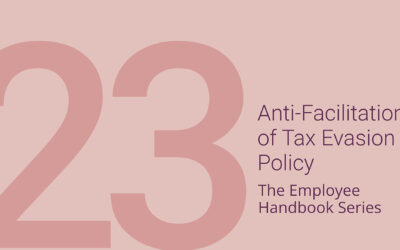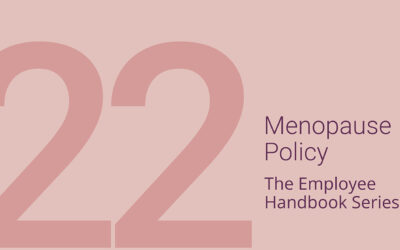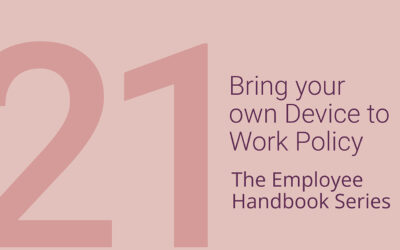EMPLOYMENT LAW FOR EMPLOYEES
Unfair Dismissal Solicitors: Support for Employees
What is an unfair dismissal?
Whatever the circumstances, the reality of an unfair dismissal claim is that it’s grounded in the dismissal of an employee by their employer, without a fair or justified reason for doing so or in the way that they have handled the process.
What can we do as your legal representative?
- Advise you on how to handle the situation if you think your employer might be getting ready to sack you;
- Help you collate the evidence leading up to your dismissal;
- Assess the strength of your case to bring a claim for unfair dismissal;
- Endeavor to negotiate a settlement with your (ex)employer;
- Represent you in making an unfair dismissal claim to the Employment Tribunal
What might you be entitled to as compensation for unfair dismissal?
It’s important to note that the compensation awarded in unfair dismissal cases varies depending on the specific circumstances. It is advisable to seek legal advice to assess the potential compensation you may be entitled to based on your individual situation.
Finally, it’s worth mentioning that employment tribunals have the discretion to adjust the compensation amounts based on the specific facts of each case. Working with an experienced employment lawyer can help you navigate the process, gather relevant evidence, and advocate for fair and appropriate compensation for your unfair dismissal.
Why Choose Atkins Dellow as your Employment Law Solicitors?
Competitive Fees
We offer no obligation chats, just get in touch.
Dedicated Solicitors
We’ll go the extra mile to offer you hassle-free legal advice.
No Legal Jargon
No jargon. We speak in plain English just like you.
Care
Regardless of the challenges, we look after your interests.
Unfair Dismissals FAQs
What constitutes unfair dismissal?
Unfair dismissal is where you, as an employee, have been dismissed from your job without a fair reason or your employer has not followed a fair procedure when dismissing you even though the underlying reason may have been fair.
Can I be Unfairly Dismissed Without a Written Contract?
Yes, you can. All employees are employed under a contract of employment which more often than not is written and signed by both parties. However, even if you only work under an oral and more informal contract, you are still entitled to the same rights as an employee. Whatever the contractual agreement, if an employee is unfairly dismissed then they’re entitled to bring a claim for unfair dismissal.
What is the qualifying period to bring a claim for unfair dismissal?
In most cases, to bring a claim for unfair dismissal, employees must have at least two years of continuous service with their employer. However, there are exceptions to this rule, such as cases involving discrimination, whistleblowing, or health and safety issues, where the qualifying period may not apply.
What are fair reasons for dismissal?
Employers can only dismiss employees for fair reasons, which are set out in UK employment law. These include capability or performance issues, misconduct, redundancy, breach of a legal duty, or where continued employment would contravene a statute or regulation.
What is meant by procedural fairness?
Even if the employer has a fair reason for dismissal, they must still follow a fair and reasonable procedure when terminating an employee’s contract. This includes providing notice, conducting a thorough investigation (if necessary), giving the employee an opportunity to present their case, and considering alternatives to dismissal.
What does substantive fairness mean?
The employer’s decision to dismiss must also be substantively fair. This means that the employer must act reasonably and make a decision that a reasonable employer would make in the circumstances. Dismissing an employee for a minor or trivial reason, without giving them an opportunity to improve, could be considered unfair.
What are the remedies for unfair dismissal?
If an employee successfully establishes that they have been unfairly dismissed, they may be entitled to remedies. These can include reinstatement (being re-employed in the same role) or compensation, which is typically capped at a statutory limit. The employment tribunal assesses the appropriate remedy based on the specific circumstances of the case.
What are the time limits for unfair dismissal claims?
It is important to be aware of the time limits for bringing an unfair dismissal claim. Generally, the claim must be lodged with the employment tribunal within three months less one day from the effective date of termination (the date the employment ended). If you believe you are facing unfair dismissal, it is advisable to gather evidence, seek legal advice promptly, and consider raising a formal grievance with your employer. An employment lawyer can provide guidance on your specific circumstances, assess the strength of your case, help you navigate the legal process to protect your rights, within the relevant timetable.
What are the grounds for a claim of unfair dismissal?
If an employer dismisses an employee for reasons such as: discrimination; retaliation for exercising employment rights; or failure to follow a fair and reasonable dismissal process, these will constitute unfair dismissal.
Do I need a minimum length of service to claim unfair dismissal?
In most cases, employees need a minimum of two years of continuous service to claim unfair dismissal. However, certain exceptions exist for cases of discrimination, whistleblowing, or health and safety concerns.
What remedies can I seek if I am unfairly dismissed?
If you succeed in an unfair dismissal claim, the remedies can include reinstatement (being re-employed in the same role) or compensation, which aims to financially compensate for the loss suffered due to the unfair dismissal.
How long do I have to bring a claim for unfair dismissal?
Generally, you must file an unfair dismissal claim with the employment tribunal within three months less one day from the effective date of termination (the date your employment ended).
What evidence do I need to support my claim?
Evidence that can support your claim includes relevant documentation (employment contract, disciplinary records, emails), witness statements, and any correspondence related to your dismissal.
Can I negotiate a settlement before going to a tribunal?
Yes, you can explore the possibility of settlement through Acas Early Conciliation or direct negotiation with your employer. It may result in a settlement agreement where you agree to withdraw your claim in exchange for certain terms, such as compensation or a reference.
How does the employment tribunal determine whether a dismissal is unfair?
The employment tribunal considers various factors, including the employer’s reason for dismissal, the fairness of the dismissal process, compliance with legal obligations, and whether the employer acted reasonably in the circumstances.
Can I claim unfair dismissal if I resigned?
In certain circumstances, you may claim constructive unfair dismissal if you resigned due to your employer’s fundamental breach of contract, making the working conditions intolerable.
Can I claim unfair dismissal if I was on a fixed-term contract?
Yes, employees on fixed-term contracts can claim unfair dismissal if the dismissal is deemed unfair and the necessary qualifying criteria are met.
Employment Law Specialists at Atkins Dellow
Related Insights
Anti-facilitation of Tax Evasion Policies in Employment Law
Introduction to Anti-facilitation of tax evasion policy As a matter of law employers must give their employees a written document which covers the key terms of the employment relationship. On top of this, it’s good practice for employers to have a staff handbook which...
Menopause Policies in Employment Law
Introduction to Menopause Policy As a matter of law employers must give their employees a written document which covers the key terms of the employment relationship. On top of this, it’s good practice for employers to have a staff handbook which includes the...
Bring Your Own Device to Work Policy for Employers
Introduction to Bring Your Own Device to Work Policy As a matter of law employers must give their employees a written document which covers the key terms of the employment relationship. On top of this, it’s good practice for employers to have a staff handbook which...
Still Need Help?





